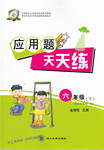��Ŀ����
���ĸĴ�
����Ӣ�������ʦҪ��ͬ��֮�佻�������ģ���������ͬ�����������ġ����й���10�����Դ���ÿ���������������ÿ��������漰һ�����ʵ����ӣ�ɾ�����ġ�
���ӣ���ȱ�ʴ���һ��©�ַ��� (^)������������д���üӵĴʡ�
ɾ�����Ѷ���Ĵ���б��(\)������
�ģ��ڴ��Ĵ��»������ߣ����ڸ�����д���ĺ�Ĵʡ�
ע�⣺1.ÿ���������ľ�����һ�ʣ�
2.ֻ������10�������ߣ��ӵ�11���𣩲��Ʒ֡�
As is well know, when senior students graduate from school, most of their textbooks are thrown away, that are still in good condition. What waste of it ! I quite agree to the suggestion that we should recycle these textbooks. For one thing, recycling textbooks can save a lot of nature materials, which are used to making textbooks. For other, senior students may have plenty of useful notes on the pages. They are very helpful to those textbooks users. However , the cost of the books will unload some burden of the families of the students. Actually in Australia and some other countries, recycling textbooks are popular and that it gives us a good example. Why can��t they have a try?
 Ӧ�����������Ĵ���ѧ������ϵ�д�
Ӧ�����������Ĵ���ѧ������ϵ�д�



